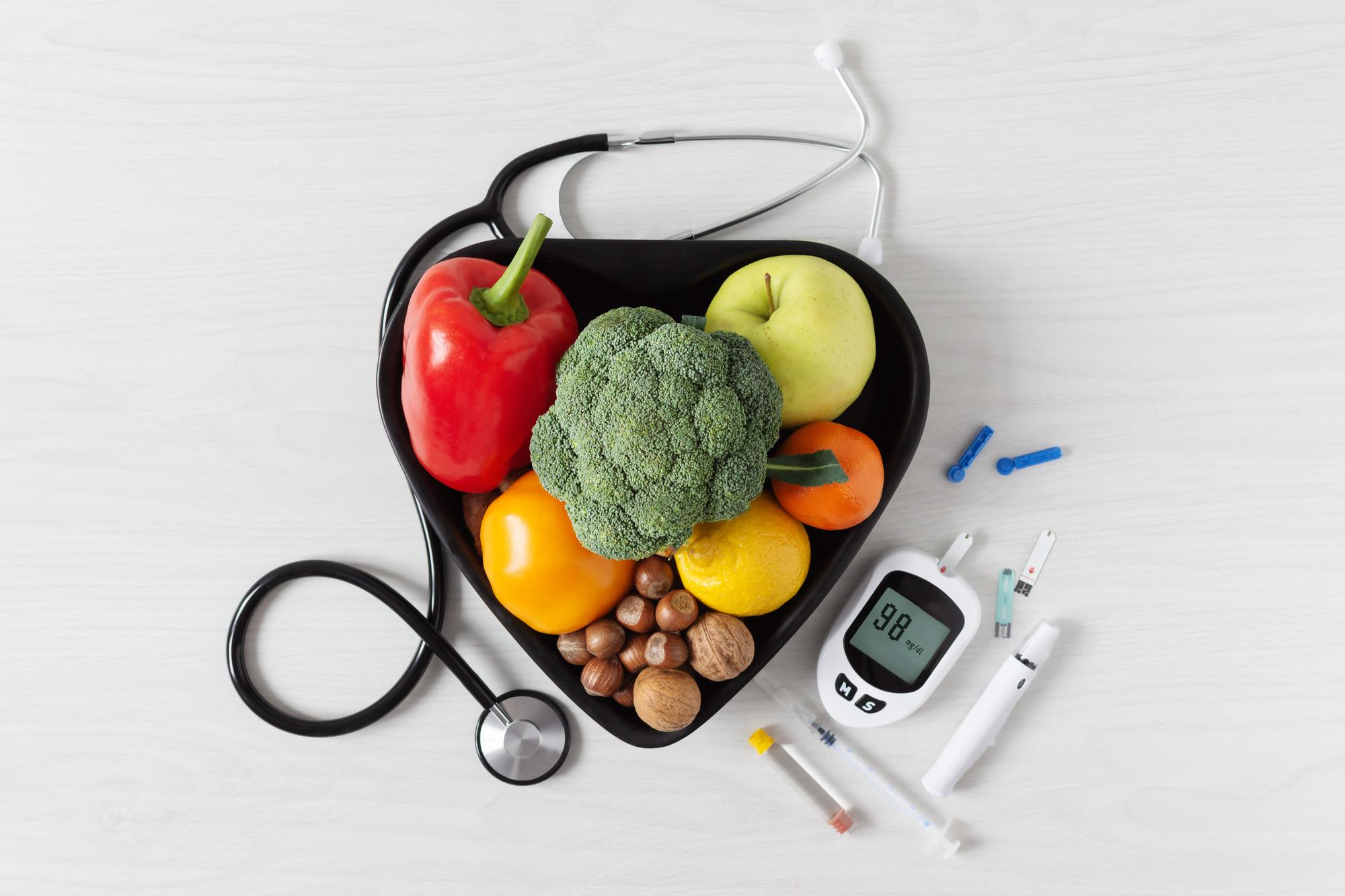10 Effective Foods & Remedies for High Blood Pressure Treatment

High blood pressure, medically known as hypertension, is a growing global health concern that affects millions of individuals across all age groups. High blood pressure occurs when the force of your blood against your arteries stays too high for too long. It doesn’t usually show symptoms, which is why it’s often called the “silent killer.”
Most people don’t even know they have high blood pressure until a random clinic visit surprises them. But when it does show up, your body might drop a few hints, like stubborn headaches that make you wonder, “Is this dehydration?” Or that random dizziness and a thumping heartbeat. Sometimes it’s nosebleeds, blurry vision, or weird head pressure that makes you Google, “why does my brain feel like it’s in a pressure cooker?”
The good news? You don’t always need fancy treatments to start making a difference. A few smart food swaps and daily habits can make a big difference. So let’s dive into this blog to discover 10 simple foods and natural remedies that can help you take control of your blood pressure.
You may also read: "Mental Health Crisis in Pakistan and How to Get Help?"
10 Best Foods and Natural Remedies for High Blood Pressure
Here are the 10 best foods and remedies for high blood pressure treatment at home.
1. Leafy Greens
How it works:
Leafy greens like spinach, kale, arugula, collard greens, and swiss chard are rich in potassium, a key mineral that helps regulate blood pressure. Potassium encourages the kidneys to excrete excess sodium through urine, which reduces pressure on the arteries and promotes healthy blood flow.
How to use:
-
Include 1–2 servings daily in salads, soups, smoothies, or steamed as a side dish.
-
Rotate different greens throughout the week to maximize nutrient variety.
2. Beetroot
How it works:
Beetroot is high in dietary nitrates, which the body converts into nitric oxide, a molecule that relaxes and widens blood vessels. This leads to improved circulation and reduced blood pressure. Scientific studies have shown that both raw beetroot and beet juice can have a measurable impact on hypertension.
How to use:
-
Drink ½–1 cup of beetroot juice daily.
-
Roast, steam, or grate raw beetroot into salads.
-
Combine with carrot or apple juice to enhance taste.
3. Garlic
How it works:
Garlic contains allicin, a sulfur compound with vasodilatory and anti-inflammatory effects. It helps relax blood vessels and improve blood circulation, which supports a reduction in blood pressure levels over time.
How to use:
-
Crush or chop raw garlic and allow it to sit for 5–10 minutes before consuming or cooking.
-
Eat 1–2 cloves per day, raw or cooked into meals.
-
Garlic supplements can also be considered after a medical consultation.
4. Bananas
How it works:
Bananas are naturally high in potassium, which helps maintain a healthy sodium-potassium balance in the body. This balance is essential for controlling blood pressure, as it promotes sodium excretion and helps relax blood vessel walls.
How to use:
-
Eat 1 banana per day as a snack or in smoothies, cereals, or yogurt.
-
Combine with other potassium-rich foods like oranges, avocados, or sweet potatoes.
5. Oats
How it works:
Oats contain soluble fiber, especially beta-glucans, which help reduce LDL cholesterol, improve blood vessel flexibility, and enhance endothelial function. These combined effects contribute to a lower risk of hypertension and improved overall heart health.
How to use:
-
Have ½–1 cup of oatmeal daily for breakfast.
-
Add fruits, nuts, or flaxseeds for added heart benefits.
-
Choose unsweetened and steel-cut or rolled oats for the best results.
6. Probiotics
How it works:
Probiotics promote gut health by supporting a balanced microbiome. A healthy gut may influence blood pressure regulation through reduced inflammation, better metabolic function, and improved absorption of nutrients like potassium and magnesium.
How to use:
-
Consume probiotic-rich foods like yogurt, kefir, sauerkraut, kimchi, or kombucha daily.
-
Opt for plain, unsweetened yogurt to avoid excess sugar.
7. Cut Back on Caffeine
How it works:
Caffeine can cause a temporary spike in blood pressure by stimulating the cardiovascular system and narrowing blood vessels. Over time, excessive intake may contribute to sustained hypertension in sensitive individuals.
How to put into practice:
-
Limit caffeine intake to 1–2 cups of coffee per day, or switch to decaf or herbal teas.
-
Monitor your response to caffeine and avoid consuming it in the late afternoon or evening.
8. Hibiscus Tea
How it works:
Hibiscus tea is rich in antioxidants (especially anthocyanins), which help relax blood vessels and act as a mild natural diuretic. Studies suggest it can significantly reduce both systolic and diastolic blood pressure with regular consumption.
How to use:
-
Steep 1–2 teaspoons of dried hibiscus petals in hot water for 5–10 minutes.
-
Drink 1–2 cups per day (avoid if taking diuretics or blood pressure meds without doctor’s advice).
-
Enjoy hot or cold, with lemon or honey if needed.
9. Manage Stress
How it works:
Chronic stress leads to a surge in stress hormones like cortisol and adrenaline, which increase blood pressure by tightening blood vessels and raising heart rate. Stress management techniques help calm the nervous system and support cardiovascular regulation.
How to put into practice:
-
Practice deep breathing exercises, meditation, or yoga for 10–20 minutes daily.
-
Engage in relaxing hobbies, maintain social connections, and ensure adequate sleep.
-
Try stress-relief apps for guided support (e.g., Headspace, Calm, Insight Timer)
10. Exercise Regularly
How it works:
Physical activity strengthens the heart, enabling it to pump blood with less effort, which reduces the force on arteries. Exercise also improves insulin sensitivity and supports a healthy weight, both of which help control blood pressure.
How to put into practice:
-
Aim for 150 minutes per week of moderate aerobic activity (like brisk walking, cycling, swimming)
-
Include strength training and flexibility exercises 2–3 times per week.
-
Start slow and gradually increase intensity if you're new to exercise.
Also read: "21 Surprisingly Effective Strategies to Prevent Heart Attack"
Takeaway:
Natural remedies like leafy greens, garlic, bananas, and hibiscus tea can significantly support healthy blood pressure when combined with regular exercise and stress management. These simple lifestyle changes, when practiced consistently, can complement medical care and help you take control of your heart health naturally and sustainably.
Talk to a licensed online doctor or the best nutritionist from all major cities of Pakistan, including Lahore, Islamabad, and Karachi, through Apka Muaalij. Book your consultation today by visiting the website or calling the quick support team (042) 32380001.
FAQs (Frequently Asked Questions)
1. What foods help lower high blood pressure?
Leafy greens, bananas, oats, garlic, and beetroot are top blood pressure-lowering foods. They're rich in potassium, fiber, and nitrates, which help relax blood vessels and remove excess sodium.
2. Can diet control high blood pressure?
Yes, a heart-healthy diet can significantly lower blood pressure. Reducing salt, processed foods, and sugar while increasing whole grains, fruits, and vegetables is highly effective.
3. Is garlic good for blood pressure?
Garlic contains allicin, a natural compound that improves blood flow and relaxes arteries, helping to reduce both systolic and diastolic blood pressure levels.
4. Does beetroot juice lower blood pressure?
Yes, beetroot juice is high in nitrates, which the body converts into nitric oxide, a compound that dilates blood vessels and helps lower blood pressure naturally.
6. How much hibiscus tea to one drink for high BP?
Drinking 1–2 cups of hibiscus tea daily may help lower blood pressure due to its antioxidant and diuretic effects. Consult your doctor if you're on medication.
7. Can stress relief lower blood pressure?
Yes, managing stress through meditation, deep breathing, or yoga can reduce hormone spikes that contribute to high blood pressure and improve heart health.

Ifra Sarwar
Ifra Sarwar holds a degree in Dietetics and Nutritional Sciences from the University of Faisalabad and West Virginia University. With experience as a hospital nutritionist and at Nutrifactor, she blends clinical expertise with evidence-based insights. Passionate about sharing accurate health information, she writes to educate and empower. Outside of work, Ifra enjoys listening to true crime podcasts and stand-up comedy.
